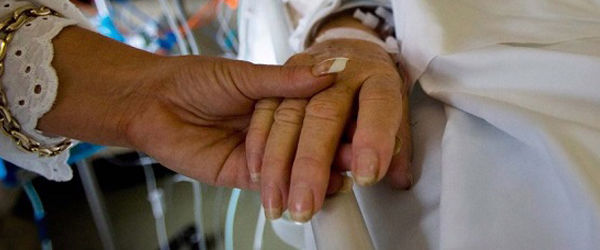Archbishop Joseph Kurtz of Louisville was elected president of the U.S. Conference of Catholic Bishops by a wide margin Nov. 12.The archbishop, the current USCCB vice president, received 125 votes during the first round of balloting during the fall general assembly of the U.S. bishops in Baltimore.In the voting for vice president, Cardinal Daniel DiNardo of Galveston-Houston was elected to the post during the third round of voting. He defeated Archbishop Charles Chaput of Philadelphia, 147-87.Archbishop Kurtz easily outdistanced the nine other candidates for president, who received a total of 111 votes. Cardinal DiNardo tallied the second highest vote total with 25.With the election of Archbishop Kurtz to head the USCCB for the next three years, the bishops returned to the practice of electing a sitting vice president to the conference presidency. In 2010, the bishops elected then-Archbishop Timothy Dolan of New York as president. His term was to end Nov. 14 as the fall general assembly concluded.The election of the New York prelate, named a cardinal in February 2012, marked the first time since the bishops' conference was reorganized in 1966 following the Second Vatican Council that a sitting vice president who sought the presidency did not win the election. He defeated then-vice president Bishop Gerald Kicanas of Tucson on the third ballot.In two previous elections, circumstances dictated that the vice president did not rise to lead the conference.In 1974, Coadjutor Archbishop Leo Byrne of St. Paul and Minneapolis, vice president since 1971, died less than a month before his term ended. Three years later, Cardinal John Carberry of St. Louis as vice president declined to run for the top spot because he was 73 and due to retire before he could complete a three-year term as president.The president and vice president are elected by a simple majority from a slate of 10 nominees. If no president or vice president is chosen after the second round of voting, a third ballot is taken between only the top two vote-getters on the second ballot.In this year's USCCB election, the vote for vice president took three ballots to conclude. In each round, Cardinal DiNardo was the leading vote-getter. He received 51 votes during the first round and 78 votes during the second round.After the second ballot, the top two vote-getters moved to a third round of voting. With 40 votes, Archbishop Chaput narrowly defeated Archbishop Jose Gomez of Los Angeles and Archbishop Gregory Aymond of New Orleans, both of whom received 39 votes.Cardinal DiNardo has headed the Archdiocese of Galveston-Houston since 2006, when as coadjutor archbishop, he immediately succeeded Archbishop Joseph Fiorenza when he retired. Then-Archbishop DiNardo was named a cardinal in 2007, making him the first cardinal from Texas.The cardinal was set to begin a three-year term as chairman of the Committee on Divine Worship at the conclusion of the assembly, but he had to vacate that seat when he was elected vice president. The bishops voted to elect Bishop Arthur Serratelli of Paterson, N.J., to the position over Archbishop Allen Vigneron of Detroit, 114-112.In other elections on the second day of their Baltimore assembly, the bishops chose Archbishop George Lucas of Omaha, as chairman of the Committee on Education in a 141 to 93 vote over Bishop George Murry of Youngstown, Ohio. Archbishop Lucas has served as interim chair of the committee since the May 2013 death of Bishop Joseph McFadden of Harrisburg, Pa., and was to begin his term at the conclusion of the bishops' meeting.During the first day of the meeting Nov. 11, Cardinal Dolan, in his final address as president of the U.S. Conference of Catholic Bishops, stressed the importance of protecting religious freedom around the world and outlined action steps the bishops could take on the issue.He urged the bishops to create an awareness of "today's new martyrs" persecuted for their beliefs by writing and talking about the issue in diocesan newspapers, blogs, speeches and pastoral letters. He also said the bishops should contact their political leaders and urge them to make the protection of "at-risk Christians a foreign policy priority.""Our good experience defending religious freedom here at home shows that, when we turn our minds to an issue, we can put it on the map," Cardinal Dolan said. "It's time to harness that energy for our fellow members of the household of faith hounded for their beliefs around the world."The cardinal cited the words of Pope Francis, who, in a Sept. 25 general audience, invited the world to exam its conscience with regard to the plight of Christians around the world. The pope asked people to ask themselves if they were indifferent to the suffering of Christians and if they offered prayers for them.The pontiff's questions must be answered not just by individual believers, but by the bishops "collectively as a body," Cardinal Dolan said.In a brief report on the extraordinary Synod of Bishops on the family, called by Pope Francis for next October, Cardinal Dolan said it has been drawing great interest from everyday Catholics, many of whom are anxious to weigh in on questions the Vatican has sent out in preparation for the session.He said he was awaiting clarification from the Holy See about how preparatory material such as the answers to a questionnaire sent to the world's bishops' conferences, will be used.Several bishops said they had already begun consulting with their priests' councils or other diocesan organizations about ways Catholics can respond to the Vatican's questions.---CNS

